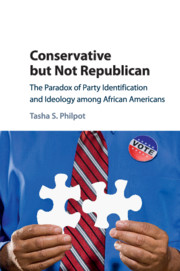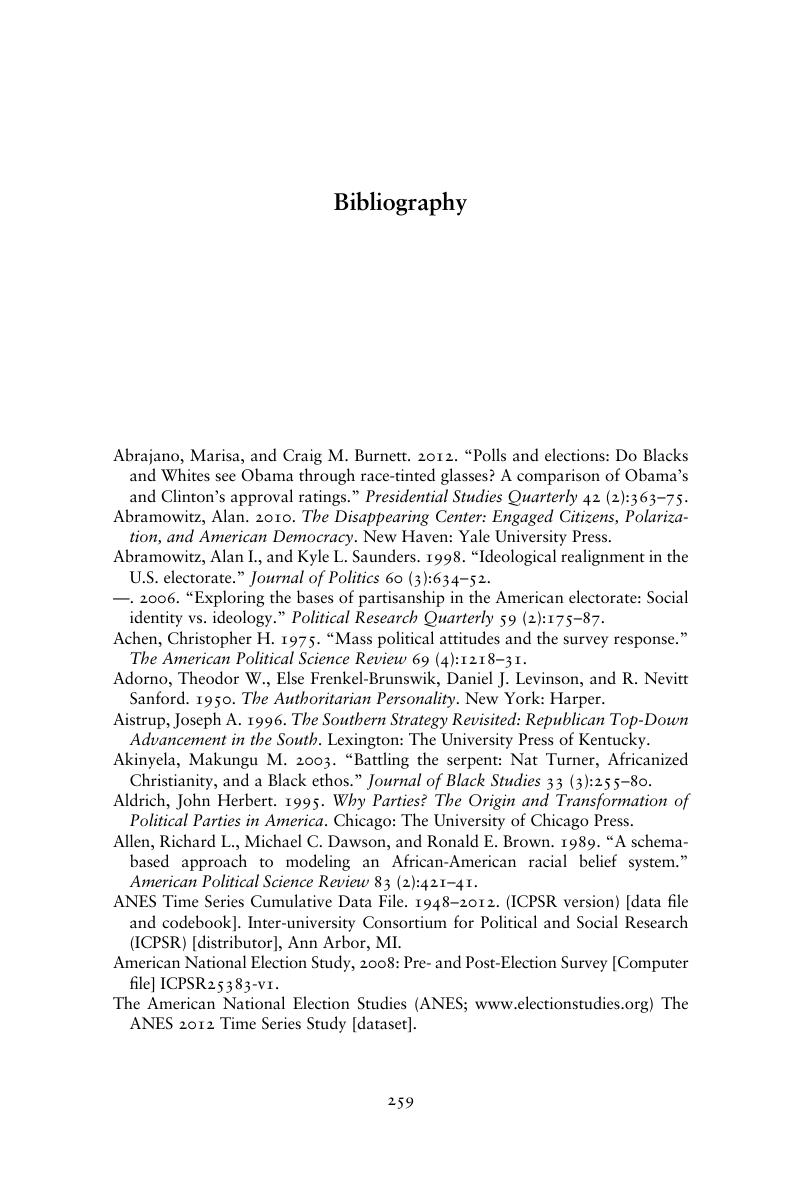 Conservative but Not Republican
Conservative but Not Republican Bibliography
Published online by Cambridge University Press: 31 March 2017
Summary

- Type
- Chapter
- Information
- Conservative but Not RepublicanThe Paradox of Party Identification and Ideology among African Americans, pp. 259 - 278Publisher: Cambridge University PressPrint publication year: 2017


